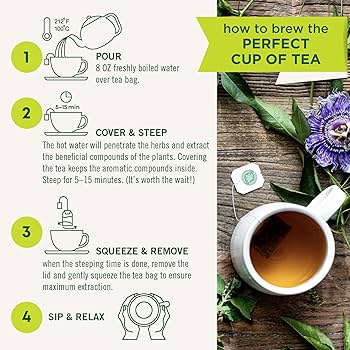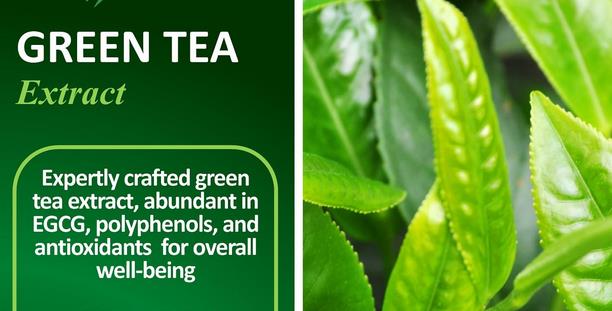Content Menu
● Understanding Green Tea Extract
● The Digestive Effects of Green Tea Extract
>> Potential Benefits for Digestion
>> Potential Risks and Side Effects
● Factors Influencing Digestive Response
● Balancing Benefits and Risks
● Green Tea Extract vs. Brewed Green Tea
● Other Health Considerations
● Conclusion
● Frequently Asked Questions
>> 1. How much green tea extract is safe to consume daily?
>> 2. Can green tea extract help with weight loss?
>> 3. Are there any groups of people who should avoid green tea extract?
>> 4. How does green tea extract compare to drinking brewed green tea?
>> 5. Can green tea extract interfere with nutrient absorption?
● Citations:
Green tea has long been celebrated for its numerous health benefits, from boosting metabolism to enhancing cognitive function. However, as with any supplement or natural remedy, it's essential to consider potential side effects. One question that often arises is whether green tea extract can cause constipation. In this comprehensive article, we'll explore the relationship between green tea extract and digestive health, examining both its potential benefits and risks.

Understanding Green Tea Extract
Green tea extract is a concentrated form of green tea, typically available in capsules or liquid form. It contains high levels of polyphenols, particularly catechins, which are responsible for many of its purported health benefits. The most abundant and well-studied catechin in green tea is epigallocatechin gallate (EGCG)[1].
The Digestive Effects of Green Tea Extract
Potential Benefits for Digestion
Green tea extract has been associated with several positive effects on digestive health:
1. Improved Gut Microbiota: Studies have shown that green tea polyphenols may positively influence the composition of gut bacteria, potentially promoting a healthier digestive system[5].
2. Anti-Inflammatory Properties: The anti-inflammatory effects of green tea catechins may help reduce inflammation in the digestive tract, which could be beneficial for overall gut health[5].
3. Antioxidant Effects: The high antioxidant content in green tea extract may protect the digestive system from oxidative stress and damage[1].
Potential Risks and Side Effects
While green tea extract offers potential benefits, it's important to be aware of possible side effects, including constipation:
1. Caffeine Content: Green tea extract contains caffeine, which can have a laxative effect in some people but may cause constipation in others, especially when consumed in large amounts[8].
2. Tannins: Green tea is rich in tannins, which can increase stomach acid and potentially lead to constipation in some individuals[2].
3. Dehydration: If green tea extract is consumed in place of water or other hydrating fluids, it may contribute to dehydration, which can exacerbate constipation[8].
Factors Influencing Digestive Response
The effect of green tea extract on digestion can vary from person to person due to several factors:
1. Dosage: Higher doses of green tea extract are more likely to cause side effects, including constipation[7].
2. Individual Sensitivity: Some people may be more sensitive to the effects of caffeine and other compounds in green tea extract[8].
3. Existing Health Conditions: Individuals with pre-existing digestive issues may be more susceptible to experiencing constipation or other side effects[7].
4. Hydration Status: Proper hydration is crucial for maintaining healthy digestion, and green tea extract should not replace adequate water intake[8].
Balancing Benefits and Risks
To maximize the potential benefits of green tea extract while minimizing the risk of constipation and other side effects, consider the following tips:
1. Start with a Low Dose: Begin with a lower dose of green tea extract and gradually increase it to assess your tolerance[7].
2. Stay Hydrated: Ensure you're drinking plenty of water throughout the day, especially when consuming green tea extract[8].
3. Monitor Your Body's Response: Pay attention to any changes in your digestive patterns and adjust your intake accordingly[7].
4. Consult a Healthcare Professional: If you have concerns about using green tea extract, especially if you have pre-existing health conditions, consult with a healthcare provider[7].

Green Tea Extract vs. Brewed Green Tea
It's worth noting that the effects of green tea extract may differ from those of brewed green tea:
1. Concentration: Green tea extract is more concentrated than brewed tea, which may increase the likelihood of side effects[1].
2. Hydration: Brewed green tea contributes to your daily fluid intake, potentially reducing the risk of constipation[8].
3. Whole Plant Benefits: Brewed tea may contain additional beneficial compounds that are not present in extracts[1].
Other Health Considerations
While focusing on digestive effects, it's important to consider other potential health impacts of green tea extract:
1. Liver Health: High doses of green tea extract have been associated with rare cases of liver damage, particularly when taken as supplements[7].
2. Interactions with Medications: Green tea extract may interact with certain medications, including blood thinners and some antibiotics[7].
3. Iron Absorption: The tannins in green tea can interfere with iron absorption, which may be a concern for individuals with anemia[2].
4. Bone Health: Excessive consumption of green tea extract may affect calcium absorption and potentially impact bone density[6].
Conclusion
While green tea extract offers numerous potential health benefits, its effects on digestion, including the possibility of causing constipation, can vary significantly among individuals. The risk of constipation appears to be more associated with high doses of green tea extract, particularly in supplement form, rather than moderate consumption of brewed green tea.
To minimize the risk of constipation and other side effects while potentially reaping the benefits of green tea extract, it's crucial to start with low doses, stay well-hydrated, and listen to your body's responses. As with any supplement, it's advisable to consult with a healthcare professional before incorporating green tea extract into your routine, especially if you have pre-existing health conditions or are taking medications.
Ultimately, while green tea extract can be a valuable addition to a healthy lifestyle for many people, it's essential to approach its use mindfully and in moderation. By doing so, you can potentially enjoy its benefits while minimizing the risk of unwanted side effects like constipation.

Frequently Asked Questions
1. How much green tea extract is safe to consume daily?
The safe dosage of green tea extract can vary depending on factors such as body weight, overall health, and sensitivity to caffeine. Generally, doses of up to 800 mg of green tea catechins per day are considered safe for most adults. However, it's best to start with a lower dose and gradually increase it while monitoring for any side effects. Always follow the recommended dosage on the product label or consult with a healthcare professional for personalized advice.
2. Can green tea extract help with weight loss?
Green tea extract has been associated with potential weight loss benefits, primarily due to its caffeine content and the presence of catechins, particularly EGCG. These compounds may boost metabolism and increase fat oxidation. However, the effects are generally modest, and green tea extract should not be relied upon as a sole method for weight loss. A balanced diet and regular exercise remain the most effective strategies for maintaining a healthy weight.
3. Are there any groups of people who should avoid green tea extract?
While green tea extract is generally safe for most adults, certain groups should exercise caution or avoid it altogether:
- Pregnant or breastfeeding women
- Individuals with liver disease or a history of liver problems
- People with iron deficiency anemia
- Those with anxiety disorders or sensitivity to caffeine
- Individuals taking blood thinners or certain other medications
It's always best to consult with a healthcare provider before starting any new supplement regimen, especially if you have pre-existing health conditions or are taking medications.
4. How does green tea extract compare to drinking brewed green tea?
Green tea extract is a more concentrated form of the beneficial compounds found in green tea, particularly catechins like EGCG. While this concentration can potentially offer more potent health benefits, it also increases the risk of side effects. Brewed green tea, on the other hand, provides a more balanced and natural form of these compounds, along with the added benefit of hydration. Additionally, the act of drinking tea can be a relaxing ritual that offers its own stress-reducing benefits. For most people, drinking brewed green tea is a safer and more enjoyable way to incorporate the benefits of green tea into their daily routine.
5. Can green tea extract interfere with nutrient absorption?
Yes, green tea extract can potentially interfere with the absorption of certain nutrients. The tannins in green tea can bind to iron, reducing its absorption in the digestive tract. This is particularly concerning for individuals with iron deficiency anemia or those at risk of developing it. To minimize this effect, it's recommended to consume green tea extract or drink green tea between meals rather than with meals. Additionally, the caffeine in green tea extract may slightly increase calcium excretion, which could be a concern for those at risk of osteoporosis. If you have concerns about nutrient absorption, it's best to discuss them with a healthcare provider or a registered dietitian.
Citations:
[1] https://www.livestrong.com/article/493436-green-tea-and-bowel-movements/
[2] https://www.practo.com/healthfeed/green-tea-side-effects-and-who-must-avoid-it-3626/post
[3] https://www.rxlist.com/supplements/green_tea.htm
[4] https://www.nature.com/articles/srep12015
[5] https://www.youtube.com/watch?v=SwpMCQFrzSs
[6] https://www.pristyncare.com/blog/15-side-effects-of-green-tea/
[7] https://www.webmd.com/vitamins/ai/ingredientmono-960/green-tea
[8] https://www.healthline.com/health/does-green-tea-make-you-poop
[9] https://pmc.ncbi.nlm.nih.gov/articles/PMC8406948/
[10] https://www.youtube.com/watch?v=7-trYY-b8XU






























